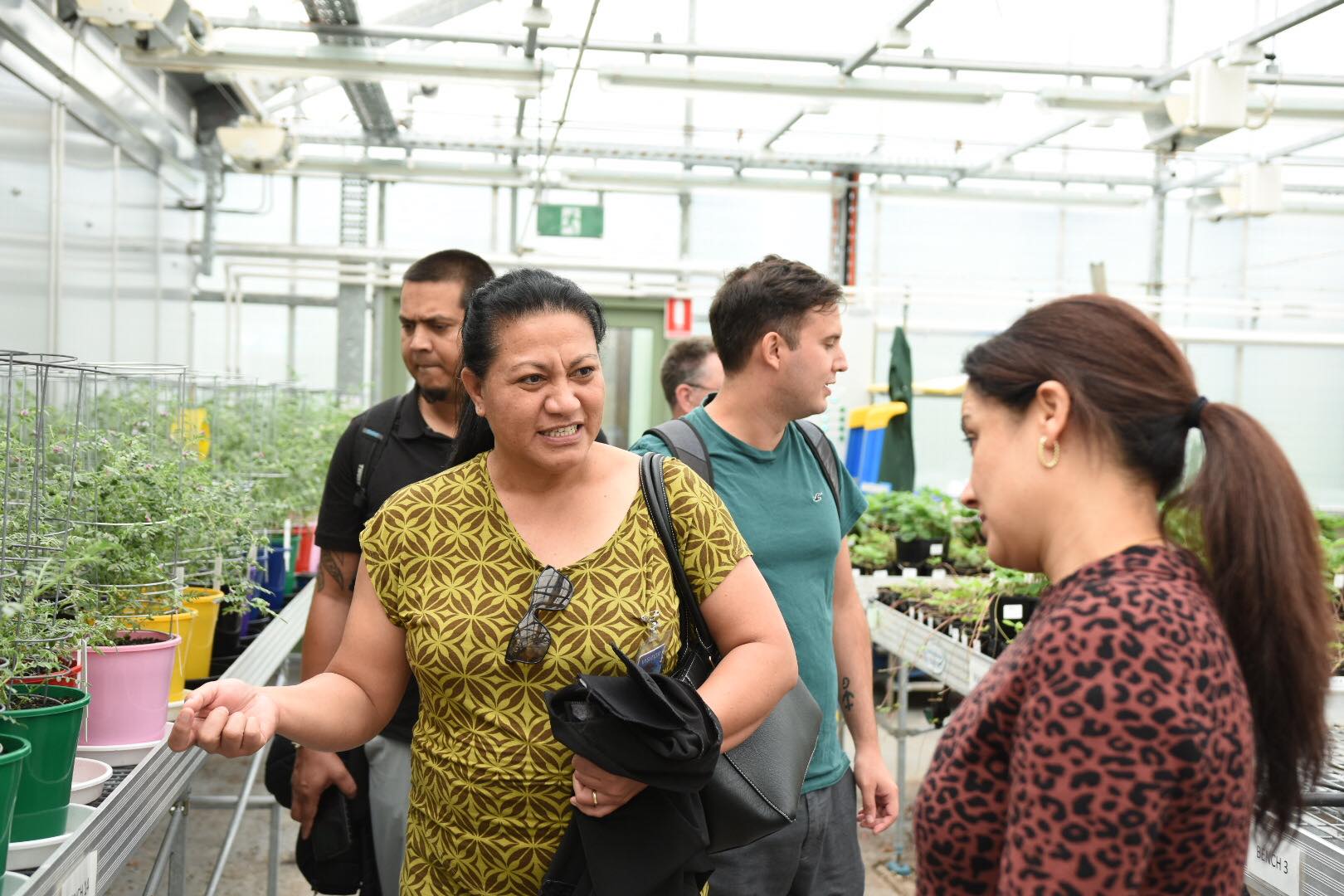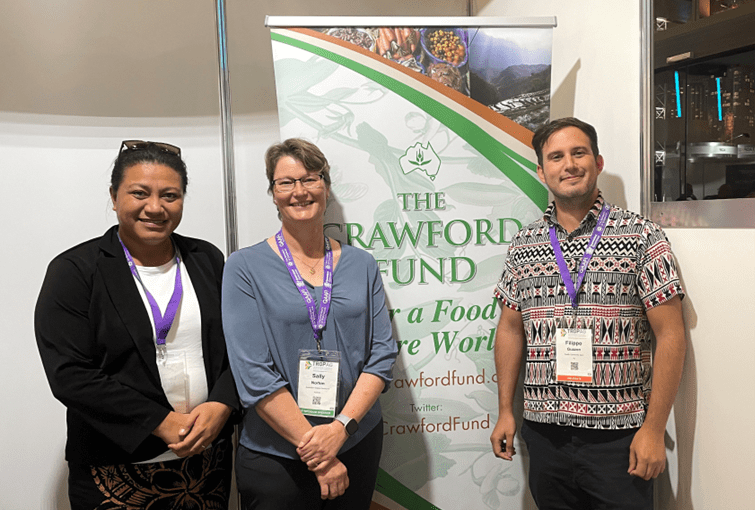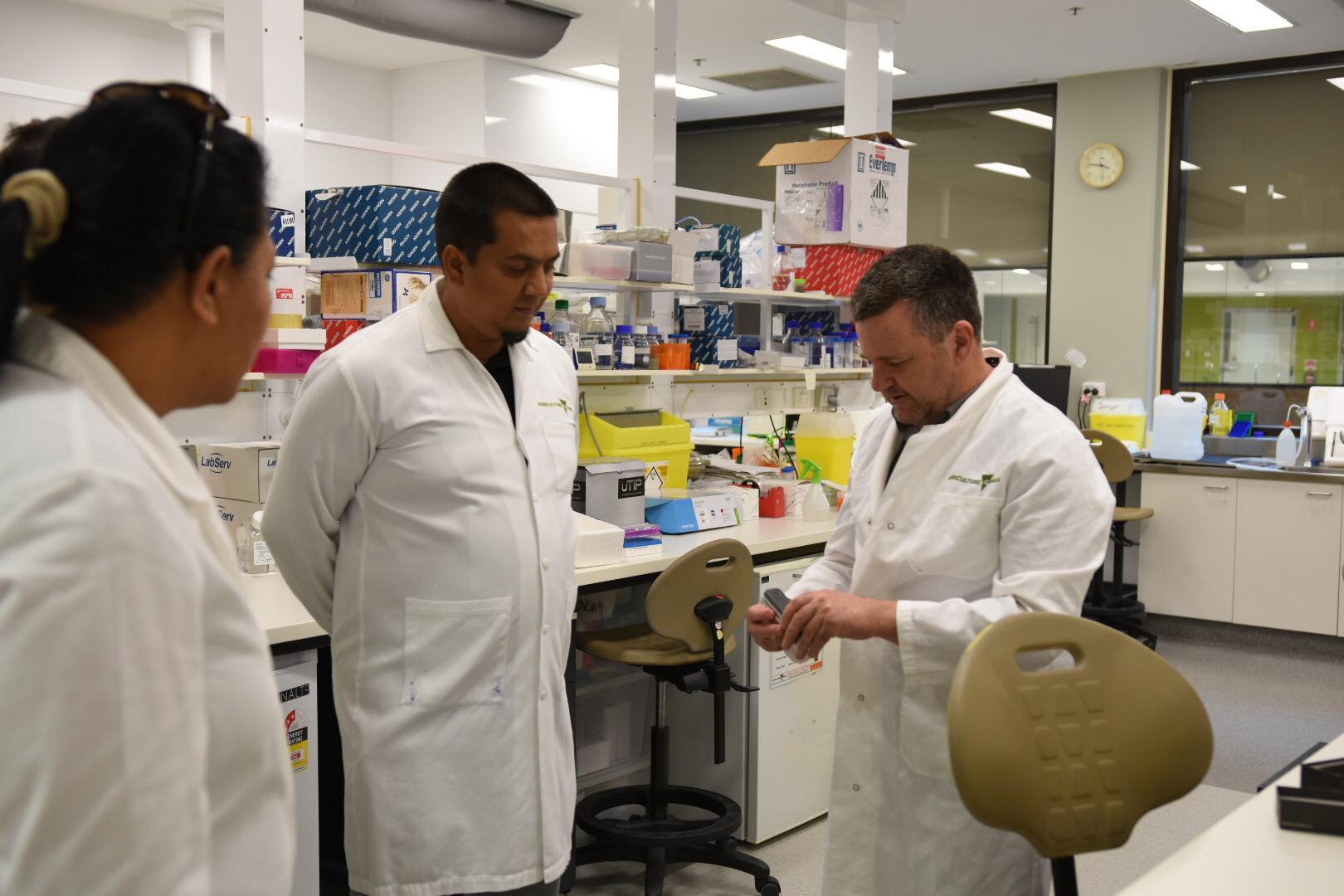

More genebank training
January 19, 2023

The Crawford Fund’s training program has touched over 13,000 developing country agricultural scientists, extension staff and farmers in a diverse range of topics.
As part of our training initiatives, we deliver short-term training of early career agricultural scientists by Australian specialists and institutions in small groups either in Australia or overseas. This is focused on practical, short-term, hands-on training tailored to the needs of an individual or for a group to increase the practical skills of agricultural scientists or farmers in developing countries.
The Crawford Fund has supported genebank related Master Classes and training in the past. Our Victorian committee recently supported a training initiative led by Dr Sally Norton, Leader of the Australian Grains Genebank at Agriculture Victoria. The funding supported staff from the Centre for Pacific Crops and Trees (CePaCT), the main regional genebank of the Pacific based in Fiji, to undertake capacity building activities in Victoria and Queensland. This follows earlier support for training led by Sally, reported here in the Weekly Advertiser.

Ms Logotonu Meleisea Waqainabete and Dr Filippo Guzzon from the Centre for Pacific Crops and Trees (CePaCT), the main regional genebank of the Pacific travelled to Australian to undertake capacity building training across ex-situ genebank best practices, plant biosecurity processes and attend the TropAg conference. Readers may recall that Logo was also involved in the Fund’s annual conference in August.
The participants visited Agriculture Victoria’s AgriBio Centre and the Australian Grains Genebank in Horsham. During the visit to AgriBio, Logo and Filippo met with key researchers and discussed plant biosecurity and disease diagnostics, high throughput genotyping and phenotyping and data management and analysis.
“The visit to the Australian Grains Genebank (AGG) in Horsham provided a deep dive into best practice genebank management across conservation, seed regeneration and seed processing areas including plant biosecurity, seed regeneration and preparation for long term cold storage. Opportunities for future collaboration were identified in areas of staff capacity building and higher education training,” said Dr Sally Norton.
The participants provided presentations to the TropAg conference that enabled them to showcase the work and impact of the CePaCT genebank, and to learn about cutting edge research in many areas of tropical agriculture. Visits with key researchers at the University of Queensland enabled discussion around current CePaCT genebank activities, and the opportunity for collaboration to increase their scale of work.

“Overall, Logo and Filippo have greater knowledge and understanding of the infrastructure, equipment and staff capacity and capability across plant biosecurity and genebank best practice with potential for future collaborations,” said Sally.
“The outcomes from this training and collaboration will enable the AGG and the Victorian government to provide greater leadership and mentoring to genebanks in the Asia Pacific region through future collaboration with CePaCT and other organisations.”
“Conversations have commenced to develop further capacity building programs that will enable CePaCT staff to undertake applied technical training at the AGG, and potentially enable AGG staff to travel to Fiji to provide in country training to local staff,” she concluded.




 0
0